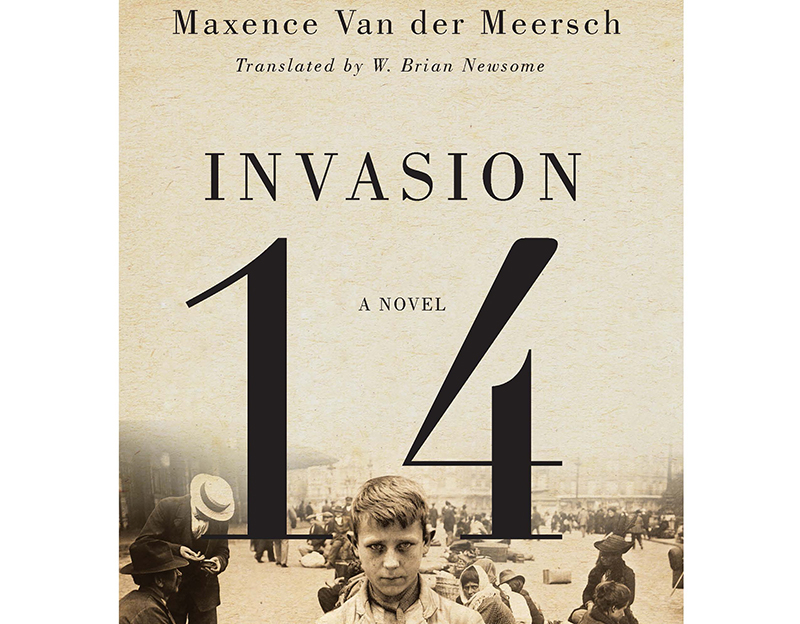Brian Newsome’s translation and annotated edition of “Invasion 14,” a 1935 novel by Maxence Van der Meersch about the German occupation of northern France during World War I, has piqued the interest of academics far and wide since its publication by McGill-Queen’s University Press in June 2016.
In October 2016, Newsome, associate professor of history and dean for curriculum and assessment at Elizabethtown College, was invited to William Paterson University, in Wayne, N.J., as its invited lecturer for the university’s History Department Lecture Series on World War I.
Also, last fall, Newsome presented “Reflections on Regime Change in the Oeuvre of Maxence Van der Meersch” for the Western Society for French History in Cedar Rapids, Iowa.
“Invasion 14” is an antiwar story closely based on Van der Meersch’s personal war experience as well as survivor testimony and documentary research, said Newsome, who encountered the works of Van der Meersch as he was conducting research on interwar France.
There was much more to this process than I’d anticipated.”
After reading one of Van der Meersch’s novels, he “went back and read more of his work” and, he said, he liked “Invasion 14” enough to use it as a teaching tool in his classes “if only there were a good translation.” With this objective in mind, the French-fluent professor took on the project himself.
In 1937, just two years after Van der Meersch’s book was published, English novelist Gerard Hopkins attempted a translation but traded accuracy and art for speed, Newsome said. “He missed the deeper meaning.” Hopkins occasionally attributed dialogue to the wrong characters and routinely dropped complete phrases. His “liberal hand undermined the nuances,” Newsome said, and, in some cases, completely changed the meaning of the storyline.
The E-town professor wanted his work to “balance a literal translation with the beauty of the language,” he said, referring to the rhythm and the imagery of the French original. “I wanted to bring all of those elements together as a package to English-language readers.”
With the centennial of World War I at hand—the war started July 28, 1914, and ended Nov. 11, 1918—Newsome set about researching and writing his translation.
The book is set along the Franco-Belgian border, with the front lines just miles away and the sound of shelling almost always in the background. Yet the novel is not about combat, Newsome said. It focuses on the experiences of the French civilians living under occupation and the German soldiers who ruled over them.
Newsome said he spent much time in France, reading through the reams of notebooks Van der Meersch kept as he penned his novel. The insights thereby gained, Newsome said, helped him better understand the mindset of the original author and helped him unravel the complexities of “Invasion 14.”
“There was much more to this process than I’d anticipated,” Newsome said, noting he gained a deeper appreciation of the occupation, interwar literature and the intricacies of translation.
More recently, Newsome and George Robb, professor of history at William Paterson, co-edited articles and an introduction to “Rethinking World War I: Occupation, Liberation, and Reconstruction,” for a special winter issue of Historical Reflections/Réflexions historiques. The issue is devoted to recent scholarship on World War I and features articles by noted historians include Elizabethtown College’s own Carl Strikwerda, president and professor of history.


